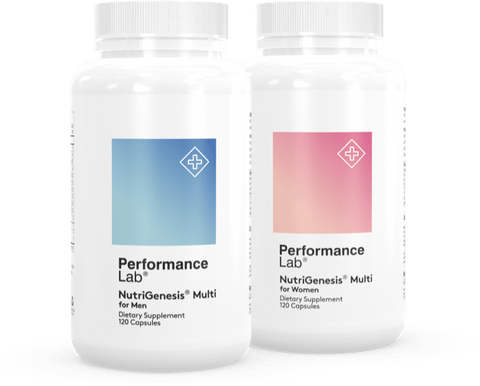It’s best to take vitamin B12 in the morning away from food to maximize absorption, as certain nutrients can inhibit it. However, vitamin B12 can be taken with food. Just ensure you’re not dealing with any nutrient interactions.
Vitamin B12 is a nutrient we hear a lot about. It’s required for red blood cell production, energy levels, cognition, heart health, and much more. But getting enough can be tricky for plant-based eaters and anyone dealing with digestive issues.
That’s where supplementation comes in handy. While there’s no shortage of B12 supplements on the market, figuring out the right time to take them is also a challenge.
If you’ve taken supplements on an empty stomach before only to feel nauseous, we get it! That’s why we’re here.
This article gives you everything you need to know about when to take vitamin B12: morning, afternoon, or night. We have all the details.
Let’s get started.
When To Take Vitamin B12
Finding the right time to take your vitamins to maximize absorption can be challenging, but with any vitamins, there is no official verdict on when is the best time to take them for the greatest efficiency.
However, some research shows that certain nutrients are best absorbed with food and can help reduce the risk of adverse effects. In contrast, others are best taken away from food to minimize nutrient interactions and maximize absorption.
Because B12 is a water-soluble vitamin, it doesn’t require a fat source for absorption, which means you can take it on an empty stomach 30 minutes before eating or two hours after a meal.
As with the other B vitamins and vitamin C, the body takes what it needs and will flush the rest out of the body through urine.
That said, vitamin B12 differs from other water-soluble nutrients. Water-soluble vitamins ascorbate (C), biotin (B7), folate (B9), niacin (B3), pantothenic acid (B5), pyridoxine (B6), riboflavin (B2), and thiamin (B1) are absorbed via specific carrier-mediated processes, whereas B12 is not 1.
Instead, a glycoprotein called intrinsic factor (IF), produced by the parietal cells of the stomach, plays a critical role in the transportation and absorption of vitamin B12 in the terminal portion of the small intestine 2.
Because IF is needed to bind to B12 to facilitate its absorption, a deficiency of IF can lead to a B12 deficiency and devastating health consequences, including hematological and neurological disorders.
Can You Take Vitamin B12 At Night?
Although B12 is known for its role in energy production, most people aren’t familiar with its involvement in sleep rhythms. And while research is still limited, some suggest that it may benefit sleep patterns 3, 4.
That said, whether you take vitamin B12 in the morning or at night doesn’t have a huge difference, as there’s little evidence suggesting morning supplementation is more effective.
But you still want to ensure you’re taking it 2-3 hours after your last meal, as it’s absorbed most effectively in an acidic environment.
Find out more about when to take vitamin B12 in our linked article:
Does Vitamin B12 Keep You Awake At Night?
Best Vitamin B12 Form
If you supplement with B12, you want to ensure that what you’re taking is being absorbed. There are four forms you’ll commonly see in supplements:
- Cyanocobalamin
- Methylcobalamin
- Adenosylcobalamin
- Hydroxycobalamin
The first is a synthetic form of B12, whereas the latter three are all bioidentical forms naturally occurring in humans and animal foods 5.
While the three natural forms have superior bioavailability and safety to cyanocobalamin, methylcobalamin is typically the most optimal form for assisting in the methylation cycle and, therefore, the preferred form for supplementation.
The process of methylation is an essential metabolic process that regulates hormone and DNA synthesis, indicating the importance of B12 in metabolism and immune functions.
Some studies show that cyanocobalamin isn’t converted into the active form of B12 as efficiently as other forms, but it’s still a popular choice for supplementation.
Also, note that the bioavailability of food-derived B12 depends on adequate chewing and levels of stomach acid and proteolytic enzymes 5. Supplementary B12 is not protein-bound, so the absorption is more efficient.
How To Optimize Your B12 Intake
Obtaining your daily intake of B12 through food is always preferential, but getting enough is difficult for people who don’t eat animal products. In this case, supplementation may be required.
While finding a pure B12 supplement is easy, why not cover all your nutrient bases in one go?
With Performance Lab NutriGenesis Multi, you get 100% RDI of 17+ essential vitamins and minerals bioengineered for optimal absorption and utilization.

References
- Said HM. Intestinal absorption of water-soluble vitamins in health and disease. Biochem J. 2011;437(3):357-372.
- Al-Awami HM, Raja A, Soos MP. Physiology, Gastric Intrinsic Factor. (Updated 2022 Jul 18). In: StatPearls (Internet). Treasure Island (FL): StatPearls Publishing; 2022 Jan-. Available from: https://www.ncbi.nlm.nih.gov/books/NBK546655/
- Takahashi K, Okawa M, Matsumoto M, et al. Double-blind test on the efficacy of methylcobalamin on sleep-wake rhythm disorders. Psychiatry Clin Neurosci. 1999;53(2):211-213.
- Okawa M, Mishima K, Nanami T, et al. Vitamin B12 treatment for sleep-wake rhythm disorders. 1990;13(1):15-23.
- Paul C, Brady DM. Comparative Bioavailability and Utilization of Particular Forms of B12 Supplements With Potential to Mitigate B12-related Genetic Polymorphisms. Integr Med (Encinitas). 2017;16(1):42-49.















